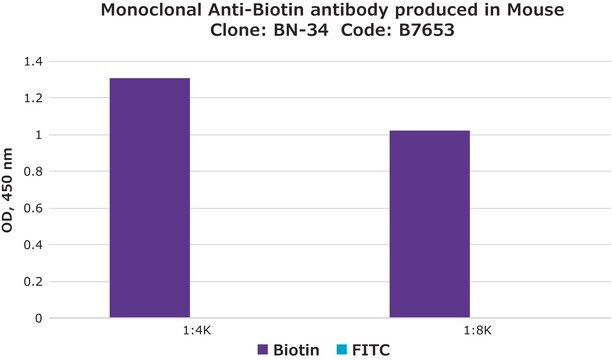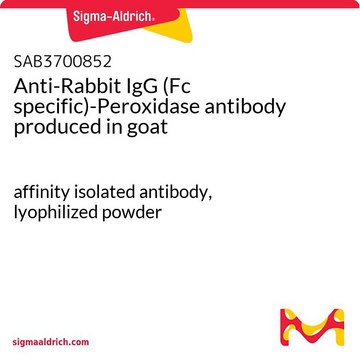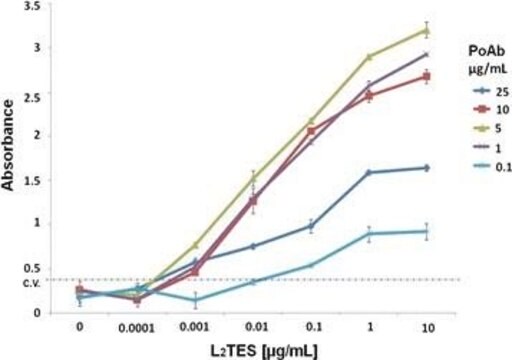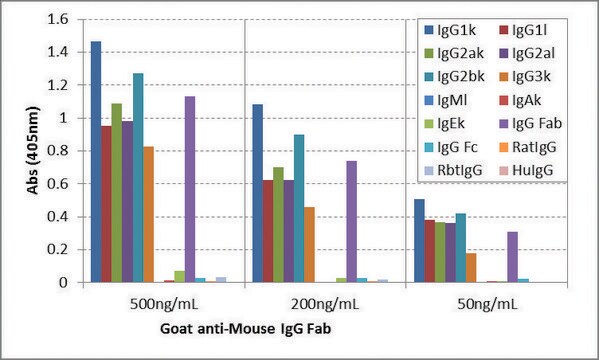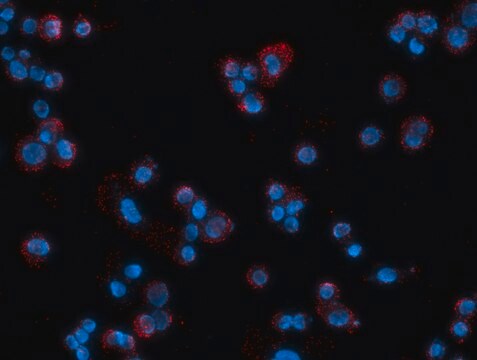SAB4200680
Anti-Biotin antibody, Mouse monoclonal
clone BN-34, purified from hybridoma cell culture
Sinónimos:
Monoclonal Anti-Biotin antibody produced in mouse, Bios II, Coenzyme R, D-Biotin, Vitamin B7, Vitamin H
About This Item
Productos recomendados
origen biológico
mouse
Nivel de calidad
forma del anticuerpo
purified immunoglobulin
tipo de anticuerpo
primary antibodies
clon
BN-34, monoclonal
formulario
buffered aqueous solution
reactividad de especies
canine, human, bovine, rat, mouse
concentración
~1 mg/mL
técnicas
ELISA: suitable
immunocytochemistry: suitable
immunoprecipitation (IP): suitable
indirect ELISA: 0.15-0.3 μg/mL
western blot: suitable
Condiciones de envío
dry ice
temp. de almacenamiento
−20°C
modificación del objetivo postraduccional
unmodified
Descripción general
Inmunógeno
Acciones bioquímicas o fisiológicas
Forma física
Cláusula de descargo de responsabilidad
¿No encuentra el producto adecuado?
Pruebe nuestro Herramienta de selección de productos.
Código de clase de almacenamiento
12 - Non Combustible Liquids
Clase de riesgo para el agua (WGK)
WGK 1
Punto de inflamabilidad (°F)
Not applicable
Punto de inflamabilidad (°C)
Not applicable
Certificados de análisis (COA)
Busque Certificados de análisis (COA) introduciendo el número de lote del producto. Los números de lote se encuentran en la etiqueta del producto después de las palabras «Lot» o «Batch»
¿Ya tiene este producto?
Encuentre la documentación para los productos que ha comprado recientemente en la Biblioteca de documentos.
Los clientes también vieron
Nuestro equipo de científicos tiene experiencia en todas las áreas de investigación: Ciencias de la vida, Ciencia de los materiales, Síntesis química, Cromatografía, Analítica y muchas otras.
Póngase en contacto con el Servicio técnico
